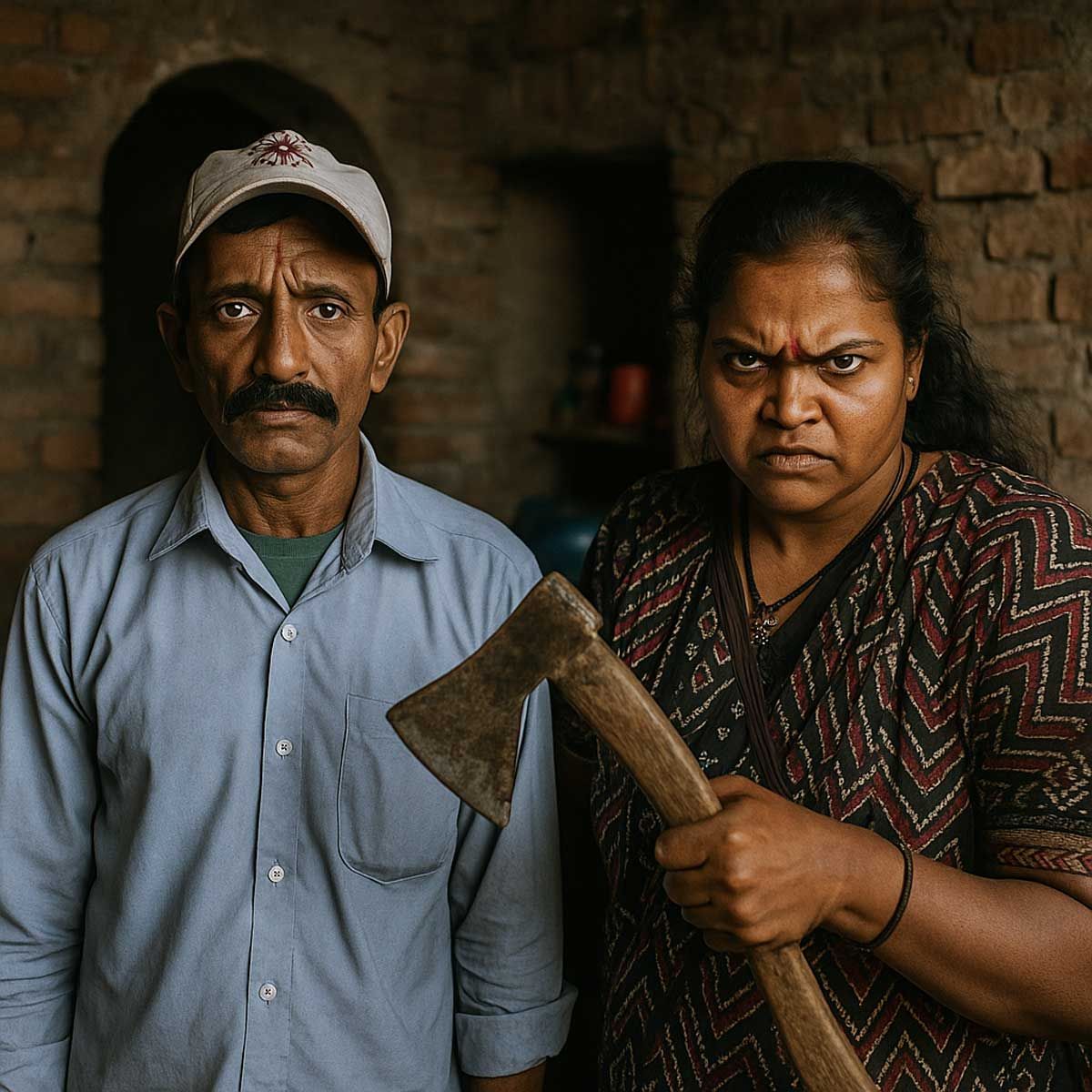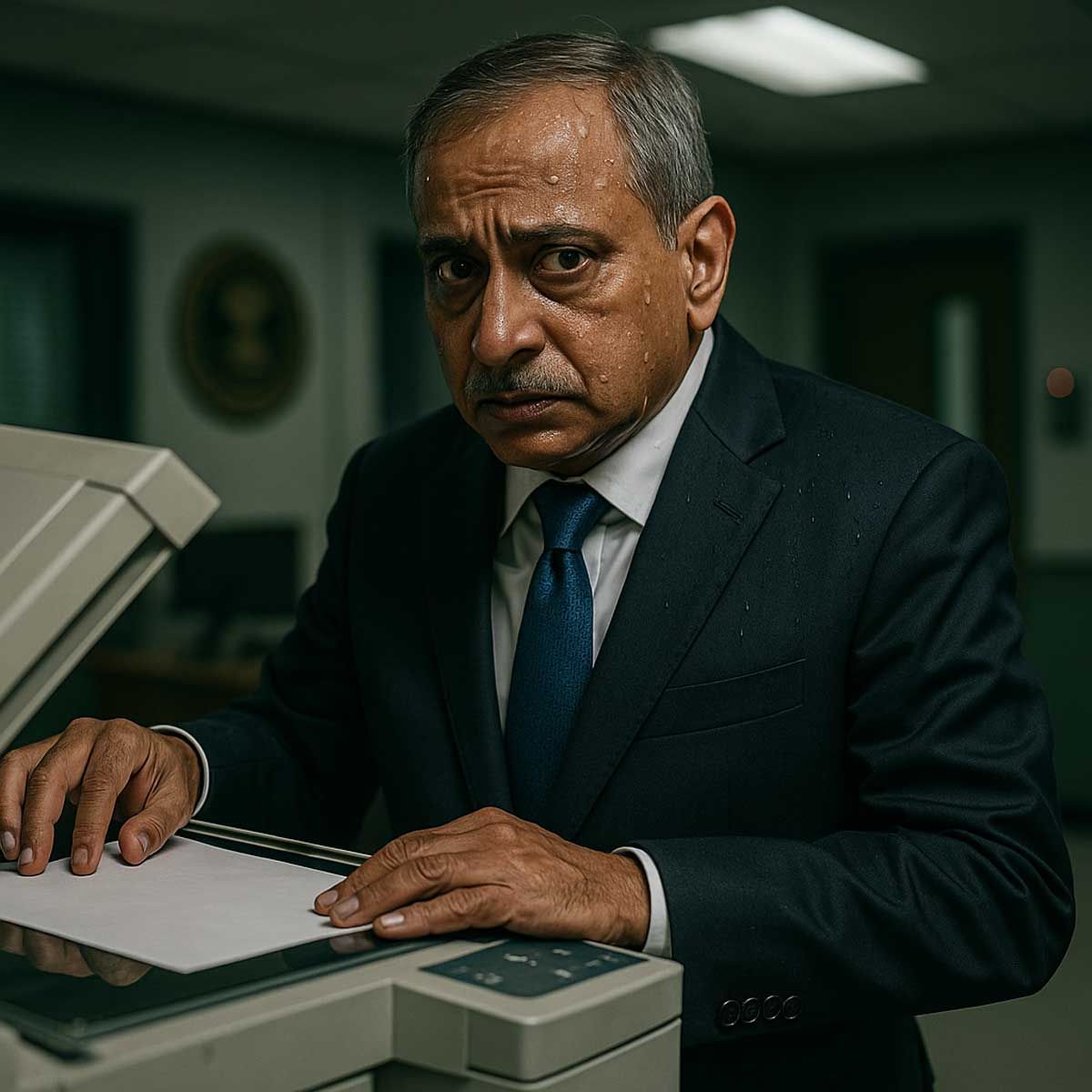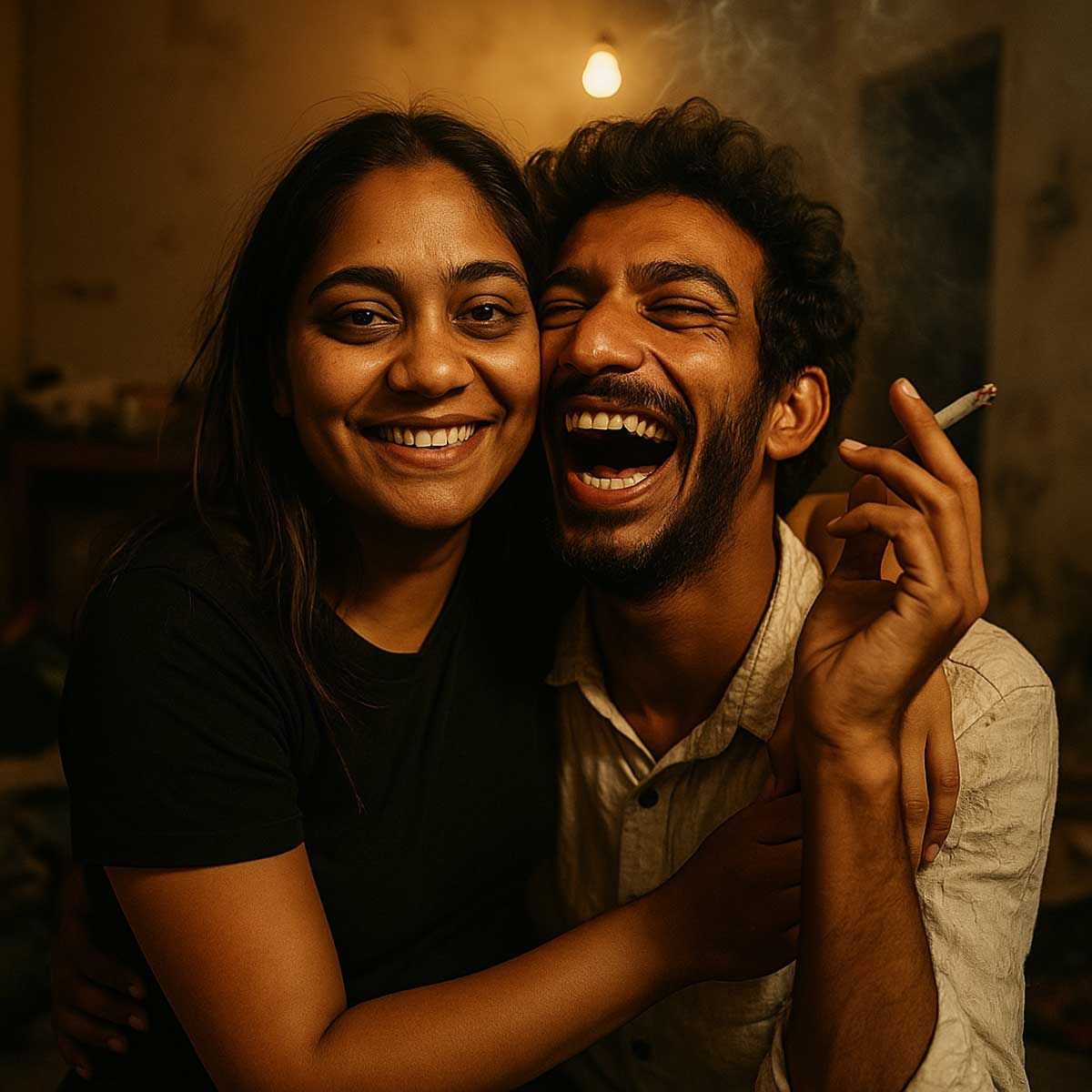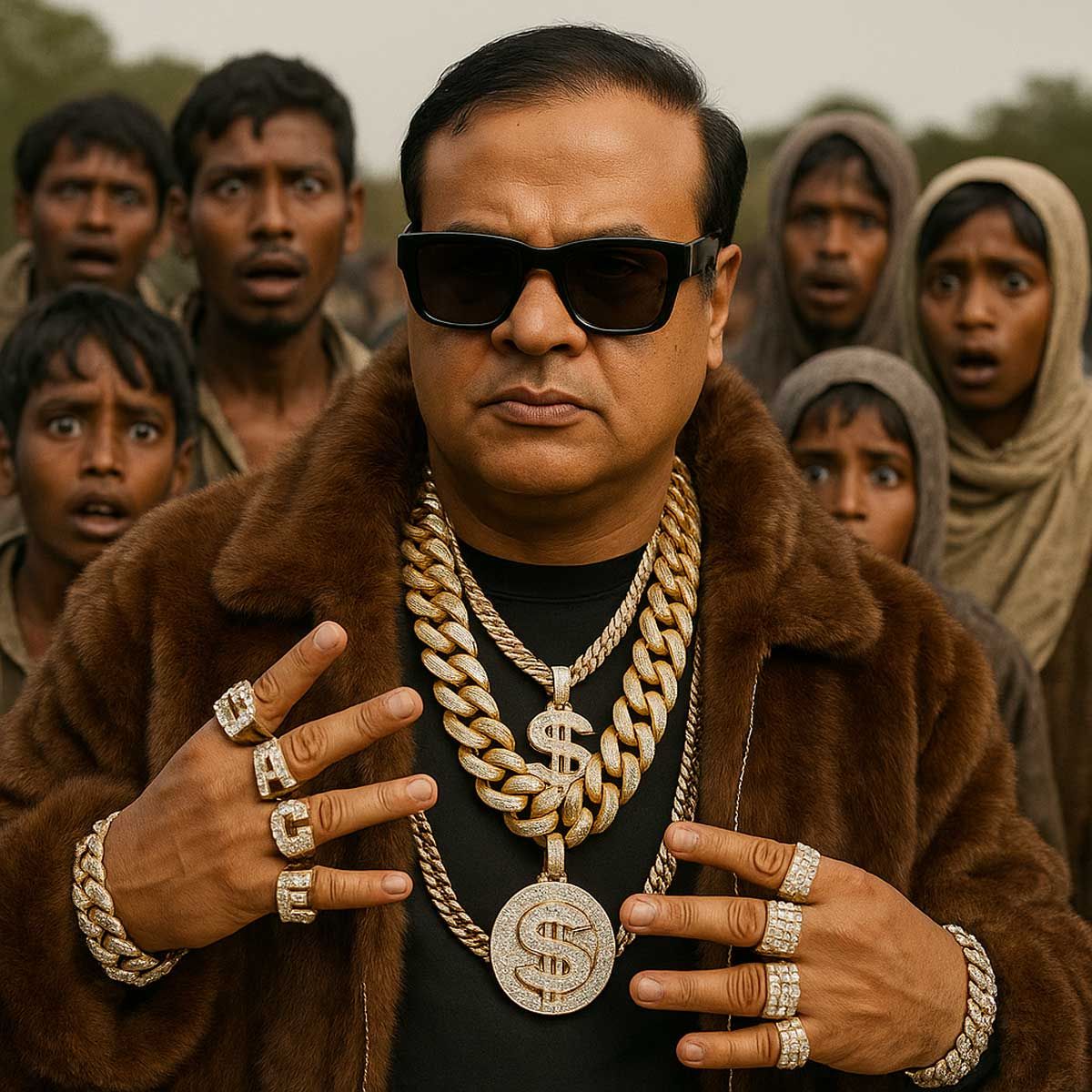More Coverage
Twitter Coverage
Satyaagrah
Written on
Satyaagrah
Written on
Satyaagrah
Written on
Satyaagrah
Written on
Satyaagrah
Written on
JOIN SATYAAGRAH SOCIAL MEDIA
"श्रापित देश": In Khulna, Bangladesh, Hindu boy Utsab Mandal killed by a Muslim mob over blasphemy accusations, with army and police present, confirmed dead by a mosque mic asking the mob to go home, local media deleted reports after video went viral

A tragedy unfolded in Khulna, Bangladesh, on the 4th of September, when a Hindu boy named Utsab Mandal was reportedly lynched by an enraged Muslim mob. The violent crowd had gathered in response to allegations that Utsab had insulted Prophet Muhammad through his social media posts. The incident took place in the second phase of Sonadanga residential area, and as reports emerged, they sent shockwaves through the community.
|
According to Khulna Metropolitan Police Deputy Commissioner (South) Md. Tajul Islam, the mob lynching of the 18-year-old Hindu youth has been confirmed. The brutal attack was caught on video, and as the footage circulated widely online, it painted a horrifying picture of the final moments of Utsab’s life. In the video, a person—whether alive or dead—could be seen lying face down, severely injured and brutalized, while Army personnel patrolled the area. In a chilling background, someone’s voice rang out, calling the victim a "Hindu... Nastik (atheist)."
The horrifying scene unfolded after a series of events earlier in the day. Students at Khulna’s Azam Khan Government Commerce College had reportedly shared certain posts on Facebook concerning Prophet Muhammad, sparking outrage within the Muslim community. As the evening set in, Utsab, a Hindu student, was taken to the office of Khulna Metropolitan Deputy Commissioner (South) Tajul Islam by some of these students. What followed was a terrifying escalation, as a Muslim mob descended upon the Deputy Commissioner’s office, surrounding it for three long hours.
The mob’s demands were loud and clear—they sought immediate punishment for the Hindu boy, accusing him of committing ‘blasphemy’ through his alleged online posts. The intensity of their anger culminated in violence, leading to the young boy’s tragic and untimely death.
Reports indicate that in an effort to prevent further violence, both Army and Navy personnel were dispatched to the scene to take control of the volatile situation. The hope was to defuse the growing tension as a violent Muslim mob gathered, seeking revenge against Utsab Mandal, the young Hindu boy accused of blasphemy. Unfortunately, their arrival did little to protect Utsab from the violence that followed. After he was escorted to the police station, Utsab was brutally thrashed by the fanatic Muslim mob, and this led to his death. Despite the authorities being present, the angry mob’s fury could not be contained, and the tragic lynching took place right in front of them.
Viral videos of the incident provide a haunting visual of what transpired that day. The footage shows a seething crowd agitating in anger, with both Army and police personnel standing by. Their presence, meant to quell the situation, failed to prevent the heinous crime from being committed. The brutal lynching occurred despite police presence, sparking outrage over the apparent inaction of those tasked with maintaining law and order.
Considering the viral videos and the initial reports by the Bangladeshi media, it is apparent that the brutal mob lynching happened while the Bangladeshi military personnel and police officials watched. This chilling revelation has caused widespread condemnation, not only of the violence that claimed Utsab’s life but also of the apparent failure of the authorities to step in and stop the bloodshed. For many, the question looms—how could such a tragedy occur when the very institutions meant to protect the public stood by and watched as a young life was so cruelly taken?
|
‘They insulted my Dharma’: Viral video shows Hindu boy saying before police
In a viral video now circulating widely on social media, Utsab Mandal, the young Hindu boy who was later lynched by a Muslim mob, can be seen surrounded by a large crowd of Muslims. The setting appears to be a police station, where police officials are casually sitting in chairs, seemingly detached from the tension unfolding around them. In the video, a person, whose face is not shown, asks Utsab why he acted the way he did. The boy responds, “I went to watch the match. There I heard some men insulting my Dharma. Hearing that, I lost my temper.” His words, though simple, reflect a sense of frustration and hurt as he tried to explain the emotional response that led him to the situation he now found himself in.
Amidst this scene of rising hostility, another person from the mob addresses the police officers, making a chilling request. “I am requesting you on behalf of all my Muslim brothers. Just give us 10 minutes. We will make him wear a garland of shoes, write ‘Nastik’ (atheist) on him and take him around the place.” The request, both threatening and humiliating, was met with laughter from the security personnel present. Their reaction, devoid of any seriousness, paints a grim picture of the lack of urgency or concern shown by the authorities. This moment, captured in the video, has left many outraged, questioning the conduct of those responsible for maintaining order.
Despite the police and Army officials being present, the situation continued to escalate. The Army officials reportedly assured the Muslim mob that maximum punishment would be given to the Hindu boy. However, their assurances did little to pacify the angry crowd. The agitated mob still thrashed him to death, ignoring any promises of justice through legal channels. The brutality of the crime, and the failure of those in power to protect the young boy, has sparked widespread condemnation and anger, not just within Bangladesh but across the world.
Utsab’s final moments, caught on camera, show a young boy overwhelmed by the mob’s fury, abandoned by those who should have shielded him.
|
What happened in Khulna last night
In a recent interview with the BBC, Khulna Metropolitan Police Deputy Commissioner Md. Tajul Islam recounted the harrowing events that unfolded in the city. On Wednesday afternoon, some local madrassa students brought a teenager to the police office, accusing the boy of posting a Facebook status that insulted the Prophet of Islam. The tension in the air was palpable as the students presented their accusations, demanding immediate action.
Deputy Commissioner Islam explained that the authorities took the allegations seriously and proceeded to interrogate the accused boy. They checked his mobile phone and confirmed the truth of the incident. Despite the escalating anger of the students, Mr. Islam sought to maintain a lawful and fair approach to the situation. He reassured the madrassa students, saying, “Okay. According to the existing law, he will be tried, there will be a case.” His words were a promise that justice would be served through the proper legal channels, in accordance with the laws of the country.
However, this assurance did little to calm the growing unrest. The students did not agree to accept the proposal of the Deputy Commissioner. Instead, their demands took a dangerous turn, as they insisted that the boy be judged according to their own laws, not the country’s. "Their claim should be judged according to their laws, not according to the existing laws of the country," Mr. Islam noted, highlighting the students' insistence on bypassing the legal system.
"They say give us five minutes. Hand over to us. Their conventional law is to kill. We cannot give that permission," Mr. Islam said, firmly standing his ground against the mob’s extreme demands. The situation was already volatile, but it worsened as word spread among the madrassa community. The students quickly informed others, and soon, more people began gathering outside the police commissioner’s office. Members of the Imam Association also joined the growing crowd, adding to the tension.
According to Mr. Islam, "from the afternoon, slowly increasing to 10, 20 people, at one time thousands of people gathered in front of the police commissioner's office." What started as a relatively small group quickly escalated into a massive crowd, the size and anger of which seemed impossible to contain. The excitement and hostility within the mob only continued to grow as the hours passed, with tensions reaching a dangerous peak.
Mass beating in front of the police-army
The situation in Khulna took a deeply tragic turn when the police engaged in a prolonged argument with the complainants, who were demanding that the arrested teenager be handed over to them. The boy had been arrested for allegedly taunting on Facebook, but the angry mob of madrassa students was unwilling to accept any resolution other than their own brand of justice. The authorities tried to maintain control, but the growing tension was palpable.
As the evening progressed, the situation became more dire. At some point in the evening, the army and navy arrived at the scene, as confirmed by Khulna Metropolitan Police Deputy Commissioner Tajul Islam. Efforts were made by several groups to pacify the enraged mob. Mr. Islam told the BBC that army, navy, local imam, Khulna University coordinators of the anti-discrimination student movement, and students of Khulna University of Engineering and Technology also tried to convince the complainants to let the legal process run its course. Despite these concerted efforts, the madrassa students remained adamant and refused to back down from their demands.
As the night wore on, the situation reached its boiling point. Hundreds of people entered the police office in the presence of army and navy. The authorities, despite their presence, could not stop what happened next. "Hundreds of people stormed into my office and beat him. They said he was dead. Then they all slowly left," Mr. Islam said. His words paint a disturbing picture of the breakdown of law and order, as the mob took control and carried out the brutal attack in full view of security forces.
Local correspondents reported that the students stormed into the Deputy Commissioner’s office around 11 p.m., and the horrific incident continued until around 12:30 a.m. By the end of the violent assault, the boy had been brutally beaten, and his fate was shrouded in confusion. Tajul Islam stated that the boy was then taken away by the army and kept in army custody. However, the confusion surrounding the boy’s condition only deepened as the night wore on.
Amid the chaos, there were conflicting reports about whether the boy had died during the lynching. Some local media outlets reported that the victim had died on the spot following the savage attack. Yet, there was no clear confirmation from the authorities. The uncertainty only added to the tension in Khulna. Khulna's local journalists said that the boy's death was announced through the mosque's microphone at night.
Even Deputy Commissioner Tajul Islam, who witnessed the entire incident, expressed his uncertainty. "But we saw that he was taken away in a body bag. Whether he is alive or dead, I cannot say at this moment," he added. His remarks reflect the confusion that engulfed the authorities, as they struggled to ascertain the boy’s condition following the brutal assault. "There were few policemen there, everything was handled by them (army). Now we are confused whether he is alive or dead. We could not communicate later," Mr. Islam said.
| Join Our Telegram Channel | t.me/SatyaagrahIndia |
Bangladeshi portals delete all reports about the incident
In a puzzling and troubling turn of events, the Bangladeshi media portals that had initially reported on the horrific mob lynching of the Hindu boy, Utsab Mandal, in the presence of police and military personnel, have seemingly erased their reports from public view. Portals including Dhakapost, Skhobor, and Samakal, which had carried detailed reports about the brutal mob lynching in Khulna, now show an error message stating ‘Error 404: not found’ when trying to access the links. This sudden disappearance of news coverage has left many questioning the reasons behind such actions.
The incident, which was captured in viral videos, clearly showed a grave act of mob violence taking place right before the eyes of the authorities. Yet, despite the evidence, the media reports, which were still accessible on the morning of September 5, have mysteriously vanished from all major Bangladeshi portals. The removal of these reports raises significant concerns, as no clear explanation has been provided for why they were taken down. In a nation grappling with increasing violence against its Hindu minority, such actions only serve to obscure the truth and deny justice to those affected.
Speculation abounds about why these reports were deleted. One possible reason is the newly elected Yunus government’s desperate attempts to deny and whitewash the relentless cases of violence and atrocities targeted against the Hindu minorities of the country, all in an effort to protect its own ‘secular, liberal’ image. This theory is bolstered by the Yunus government’s need to maintain its public image, despite mounting evidence of growing religious intolerance and violence. The deliberate suppression of media coverage related to the Khulna mob lynching incident is seen by some as part of a broader effort to silence stories that could tarnish the government's reputation on the international stage.
Reports have surfaced indicating that the Bangladeshi government has been conducting investigations and shutting down media outlets that refuse to align with the government’s narrative. The ‘popular’ narrative in Bangladesh has been that these media portals were supportive of the previous government led by Sheikh Hasina or had propagated ‘misleading’ information during the protests that led to her ouster. However, many suspect that the real motive is to suppress stories that highlight the ongoing violence against Hindu minorities, effectively downplaying or erasing their suffering from public view.
Compounding the concerns is the new Bangladeshi government’s increasingly indulgent stance toward radical Islamic elements. One of the first actions taken by the Yunus government after coming to power was to lift the ban on Jamaat-e-Islami and Islami Chhatra Shibir, both of which were previously banned by Sheikh Hasina due to their involvement in violent activities. This move has raised alarm among many, as these organizations have a history of fostering extremism, and their reintroduction into Bangladeshi society is seen as a dangerous step backward.
Earlier, on August 19, a troubling precedent was set when the High Court of Bangladesh imposed a suspension on Somoy TV, accusing the channel of airing content that was seen as ‘pro-Sheikh Hasina.’ Somoy TV had also been highlighting the atrocities against minorities, which perhaps contributed to the decision to silence it. This move raised concerns about the growing suppression of media outlets that dared to shed light on the violence and injustices faced by minority communities, particularly Hindus, in Bangladesh.
In an even more shocking development, the body of a woman journalist named Sarah Rahanuma was found in the Hathirjhil lake in Dhaka. Her death has sent ripples of fear through the journalist community and serves as a grim reminder of the dangers faced by those who dare to report on the sensitive political and social issues in the country. Her name is now added to a considerably large list of people who have been murdered during or after the violent protests that toppled the Hasina government. The violence that followed the government’s fall has been particularly brutal, especially toward the Hindu minority, many of whom have lost their jobs, been beaten, or even killed.
This rising tide of violence against Hindus is further compounded by the fact that a number of incidents have been reported where Hindu employees have been sacked from their jobs, and Hindu leaders have been brutally beaten or murdered in Bangladesh in the aftermath of the fall of the Awami League government. While these atrocities continue to unfold, the global ‘Left-Liberal’ media has been carrying out relentless attempts to deny or whitewash the incidents of targeted violence against minority Hindus, desperately trying to paint them as ‘political issues.’ The international media’s reluctance to acknowledge the religious dimension of these attacks has only added to the frustration and fear felt by the Hindu community.
In a fresh report, there seems to be some confusion regarding the fate of Utsab Mandal. Bangladeshi media outlet Samakal reported that though the police in Khulna had earlier said that the Hindu boy had died after getting beaten by the mob, the same police have now said that the boy is alive and under treatment. This conflicting information has added to the chaotic and disturbing nature of the entire situation, making it even more difficult for those seeking the truth about what happened to Utsab.
However, despite the police’s later claims, many social media posts show clearly that after the killing of the Hindu boy Utsab Mandal in Khulna, the mosque speaker confirmed the death. These posts have caused outrage, as the narrative being pushed by authorities appears to contradict the information being shared by locals on the ground. The tragic death of Utsab Mandal is being described in chilling detail, with reports suggesting that he was killed with the involvement of both military personnel and local cadres, who reportedly cheered with the phrase, “Alhamdulillah.”
As the community mourns, it has become clear that the violence against Utsab Mandal was not just an isolated incident, but rather part of a broader pattern of brutality directed at minority Hindus in Bangladesh. After the killing of the Hindu boy Utsab Mandal in Khulna, the mosque's mike confirmed the death, telling the mob to go back home. This announcement, made in such a public manner, has left no doubt in the minds of many that Utsab’s life was tragically taken in a moment of extreme hatred and religious intolerance. His death, like the deaths of so many others, stands as a stark reminder of the ongoing violence and the desperate need for justice and protection for the Hindu minority in Bangladesh.
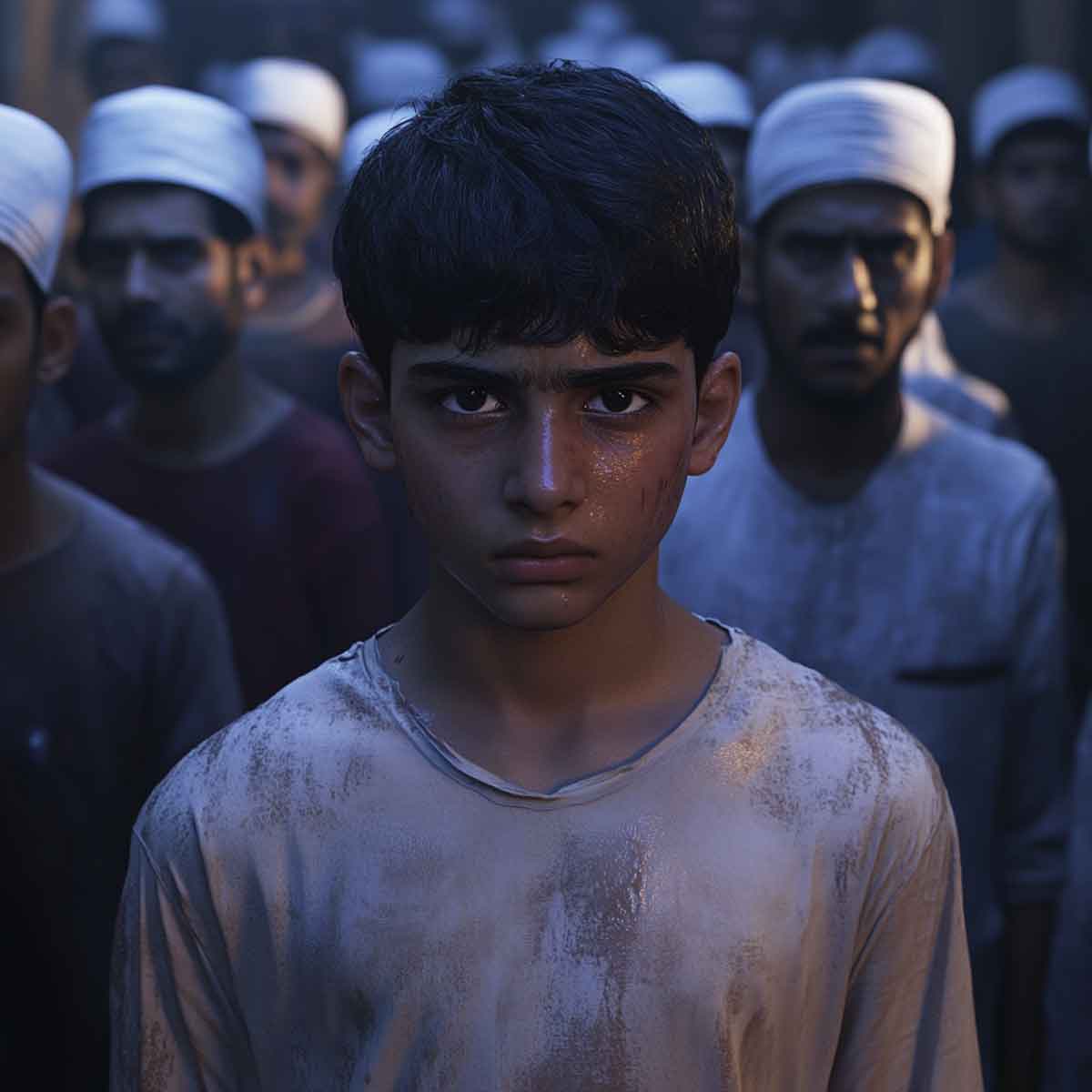 |
 Support Us
Support Us
Satyagraha was born from the heart of our land, with an undying aim to unveil the true essence of Bharat. It seeks to illuminate the hidden tales of our valiant freedom fighters and the rich chronicles that haven't yet sung their complete melody in the mainstream.
While platforms like NDTV and 'The Wire' effortlessly garner funds under the banner of safeguarding democracy, we at Satyagraha walk a different path. Our strength and resonance come from you. In this journey to weave a stronger Bharat, every little contribution amplifies our voice. Let's come together, contribute as you can, and champion the true spirit of our nation.
 |  |  |
| ICICI Bank of Satyaagrah | Razorpay Bank of Satyaagrah | PayPal Bank of Satyaagrah - For International Payments |
If all above doesn't work, then try the LINK below:
Please share the article on other platforms
DISCLAIMER: The author is solely responsible for the views expressed in this article. The author carries the responsibility for citing and/or licensing of images utilized within the text. The website also frequently uses non-commercial images for representational purposes only in line with the article. We are not responsible for the authenticity of such images. If some images have a copyright issue, we request the person/entity to contact us at This email address is being protected from spambots. You need JavaScript enabled to view it. and we will take the necessary actions to resolve the issue.
Related Articles
- "मेरा मुल्क, मेरा देश, मेरा ये वतन": In Tanti Bazar, Bangladesh, Mohammed Hridoy, and Mohammed Jibon attacked a Durga Puja mandap with a petrol bomb, stabbing devotees when stopped, as Bijoy Shah clarified the attack and robbery were separate incidents
- Despite immense sacrifice by Hindu community in the liberation war they are subjugated denominations in the country. Bangladesh seized 26 lakh acres of land from Hindus under black law of “Enemy Property Act”
- "हाहाकार": Amid ongoing persecution, Hindu youth Sudeb Halder hacked to death, activists say he was murdered for being Hindu; 205 temple attacked, idols vandalized, ISKCON suppressed, blasphemy charges target Hindus under Yunus's interim rule
- Rape accused Dilshad used to torture the family after getting out on bail: Minors' father a former BSF Jawan Bhagwat Nishad shot dead the accused in the Court
- Secular Supreme Court in communal 'Khela Hobe' move urges Jagannath temple to allow entry of non-Hindus
- Global elite has always loathed a confident India: Earlier NYT & BBC had declared Nehru intolerant
- RTI activist Anil Ochavar was murdered on Sunday night in Maharashtra’s Yavatmal, Danish Shaikh Israel and three others were arrested on the basis of a complaint filed by the victim’s wife
- "Modi hell-bent on re-creating the lost Hindu kingdom or Hindu Rashtra”: Propaganda of demonizing India over the fake narrative of ‘Muslim persecution’ set in motion again by International Toolkit
- Narasimha Anjaneyar temple demolished in Tamil Nadu despite devotees best efforts to save it, places of worship of other religions are spared
- Angry Hindu worshippers caught a Muslim youth Yakub red-handed vandalizing idols placed in a Shiv temple in Muzaffarnagar: Yakub handed over to the police, demanded a fair and speedy trial, no violence reported
- Call it communism, 'wokeism' or Left leaning political ideology; secularism for sure has its ways to lose a friend
- References to deliberate misappropriation of Hindu religious symbol Swastika as ‘anti-semitic’ and ‘fascist’ dropped from New York State Assembly bills: Hindu sacred emblem 'Swastika' finds its roots in the Vedas
- ‘Casteless Hindu’ is Not a Paradox. It is The keystone of ‘Ghar Wapsi’ and Hindutva
- Hindu community living in a state of fear as half-a-dozen temples have been vandalised and robbed in the last two weeks amidst the ongoing truckers’ protest: Canada
- Hindu outfit Karni Sena files police complaint against Asaduddin Owaisi, Chandrashekhar Azad, SP candidate responsible for Kairana exodus and others: Anti-Hindu hate speech















